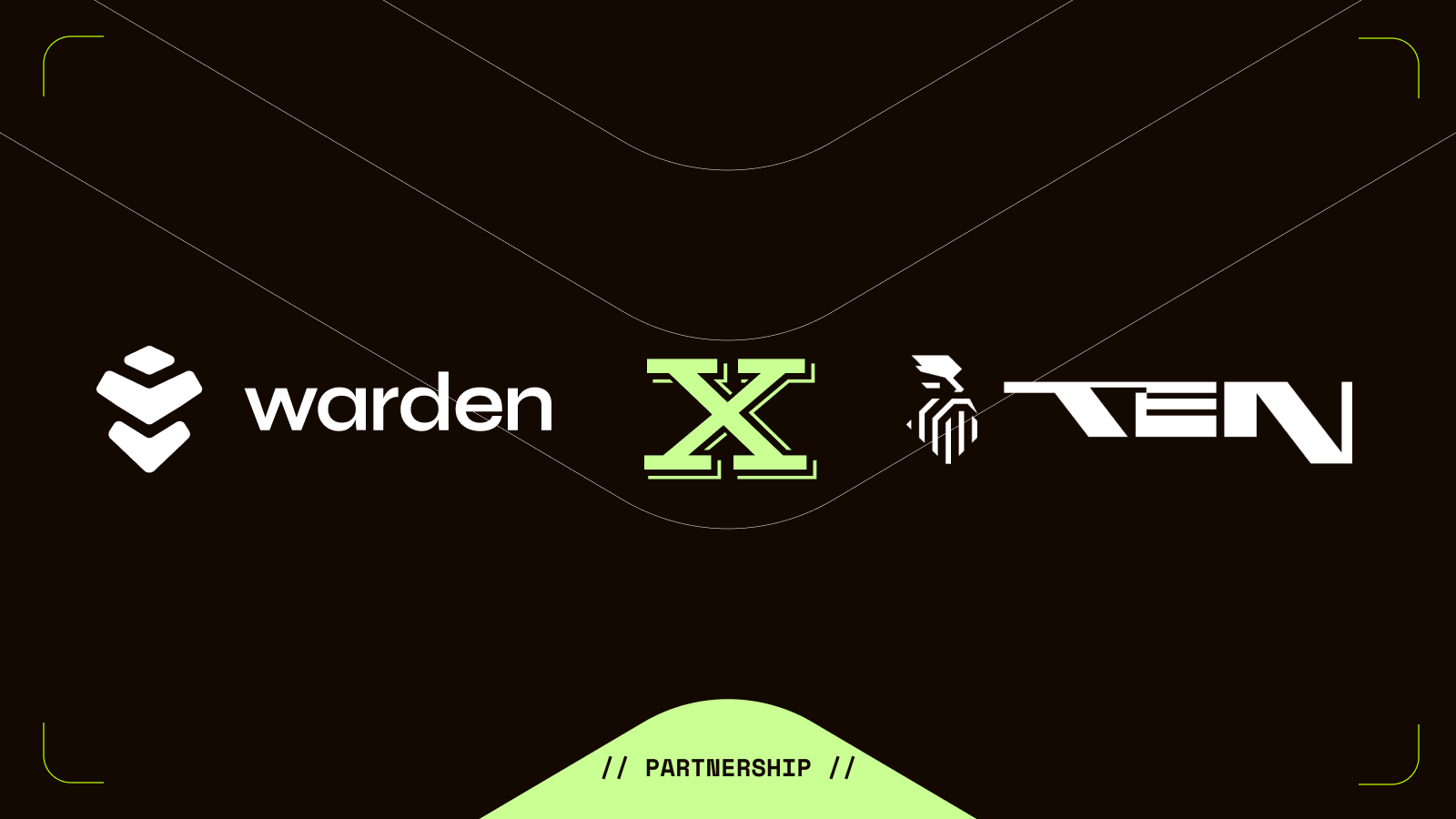Warden Protocol Partners with TEN to Enable Secure and Controlled AI Computation
Apr 14, 2025

Warden Protocol has announced a partnership with TEN, a specialized execution layer built for controlled compute and execution integrity. This collaboration introduces confidential computing capabilities to AI agents operating on Warden Protocol, ensuring security, integrity, and trust in decentralized AI applications.
Warden Protocol is a decentralized infrastructure designed to power AI agents with verifiable execution and interoperability across blockchain ecosystems. By enabling AI models to operate within a secure and trustless environment, Warden Protocol facilitates decentralized decision-making, automation, and autonomous agent coordination.
TEN is a controlled computation platform that allows AI models and applications to process sensitive data with execution that holds. Through Smart Transparency and purpose-built execution, TEN ensures that proprietary models, confidential inferences, and controlled datasets remain protected while still enabling valuable computations.
Enhancing AI Computation with Controlled Execution Technologies
AI agents often face challenges related to proprietary models, sensitive data, and inference security. Exposure of these elements can result in model theft, reverse engineering, and front-running attacks. Through this partnership, TEN's controlled compute solutions enable AI agents to operate with logic that can't be gamed, without revealing critical information.
Key Advantages of the Integration
Protection of Proprietary Models – AI agents can utilize models securely without the risk of inference data being reverse-engineered.
Prevention of Front-Running – Confidential AI-driven liquidity solutions can function without exposing transactions to potential exploitation.
Data Access Control – Organizations and individuals can use controlled datasets in AI computations while maintaining data confidentiality.
Trustworthy AI Decision-Making – Secure computation frameworks enhance transparency while safeguarding sensitive information.
Benefits for Developers Using the Warden Agent Kit (WAK)
Developers building AI agents with the Warden Agent Kit (WAK) will directly benefit from this partnership. The integration of TEN's controlled execution framework allows WAK-based agents to securely process sensitive data, ensuring confidential AI-driven applications. With this enhancement, developers can:
Deploy AI agents that handle proprietary models without exposure risks.
Build secure AI-powered trading bots and liquidity solutions free from front-running threats.
Utilize controlled datasets in AI computations without compromising confidentiality
Ensure that AI decision-making remains transparent while maintaining robust data security.
A Step Forward for Decentralized AI
The integration of TEN's controlled execution framework with Warden Protocol's decentralized AI infrastructure establishes a new benchmark for secure and autonomous AI agents.
This collaboration follows a general innovation seen in the industry, delivering new benefits to AI and DeFi ecosystems. Warden Protocol and TEN aim to provide a robust solution for AI-powered trading, financial automation, and secure AI inference.
About TEN
TEN is a TEE-powered execution layer on Ethereum designed for applications that require controlled compute, verifiable logic, and secure collaboration. Built by the team behind R3's Corda, TEN enables developers to create applications previously thought impossible: on-chain games with hidden information, DeFi without MEV exploitation, and agentic AI that preserves user sovereignty. TEN brings Web2's core powers—confidential compute, logic containment, execution control—into a decentralized, Ethereum-aligned network.
About Warden
Warden Protocol brings AI to web3, enabling any application, protocol, or smart contract to integrate safe AI. Blockchain isn't built for humans. Warden is the verification and execution layer for AI that makes mass adoption of web3 possible. Its verification layer ensures AI results are correct using blockchain, cryptography, and consensus, while the execution layer simplifies integration and automates workflows across chains. With x/async for scalable AI execution, the Warden Agent Kit for secure deployment, and seamless omnichain interoperability, Warden lets developers focus on building, not complexity.
More updates on the integration will follow as the collaboration progresses.